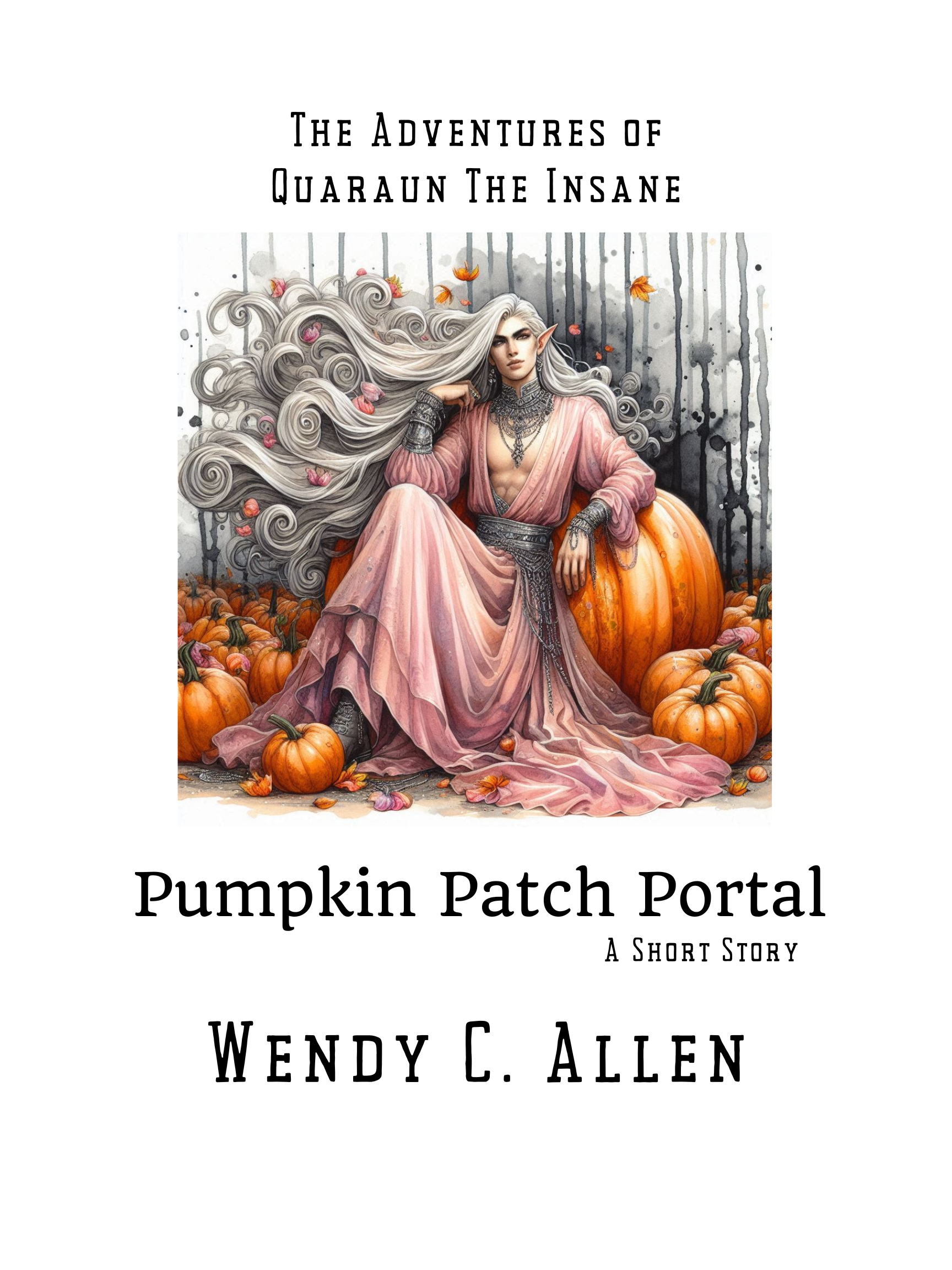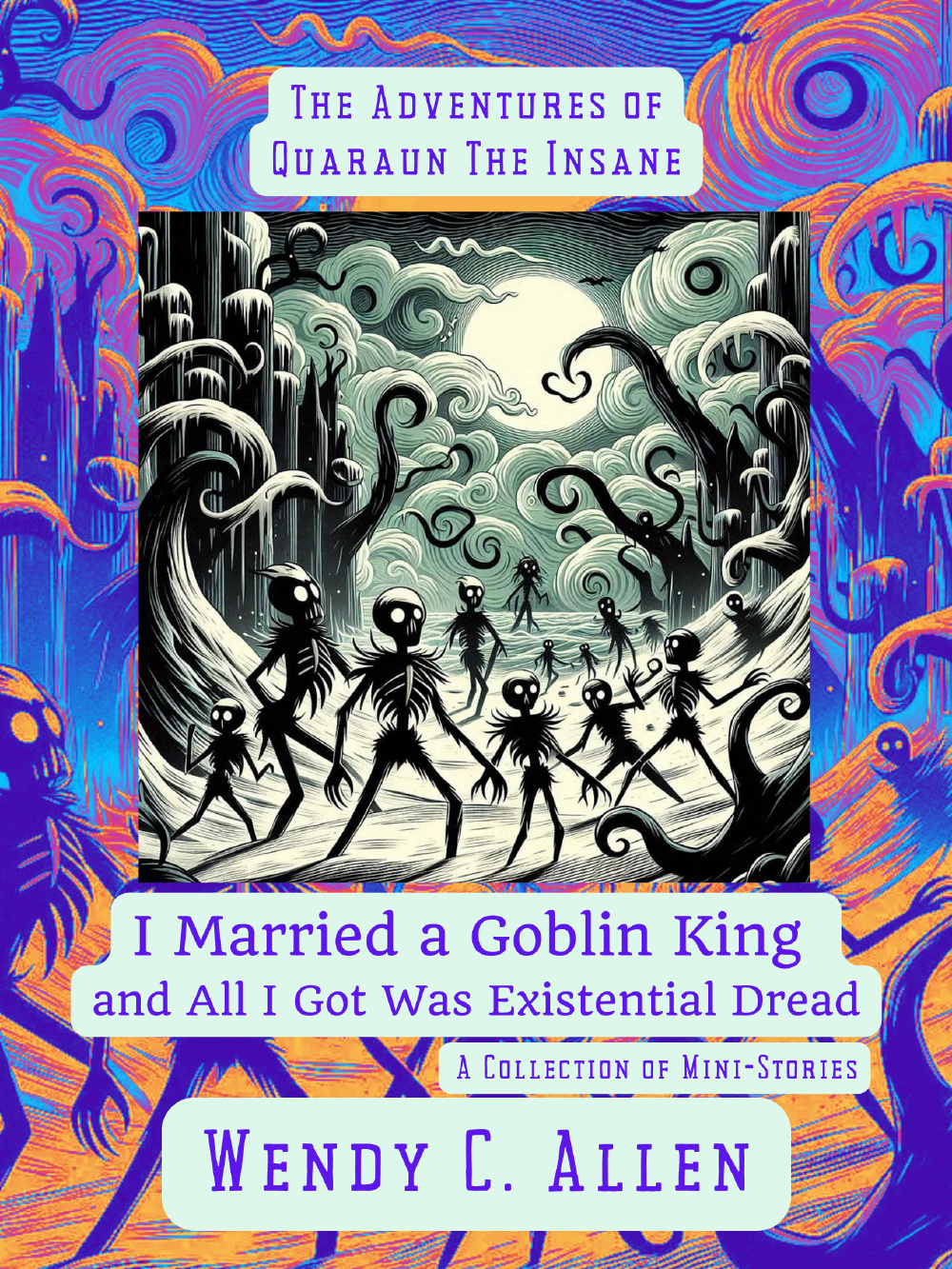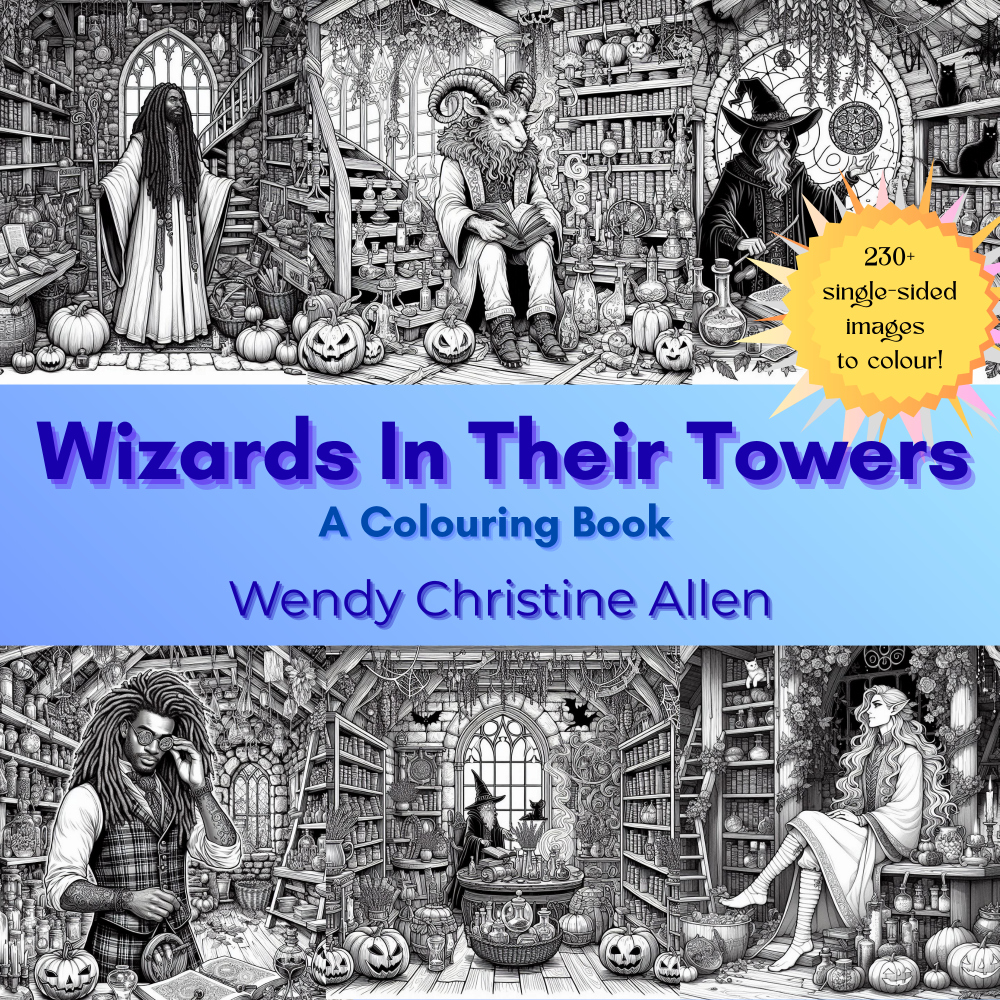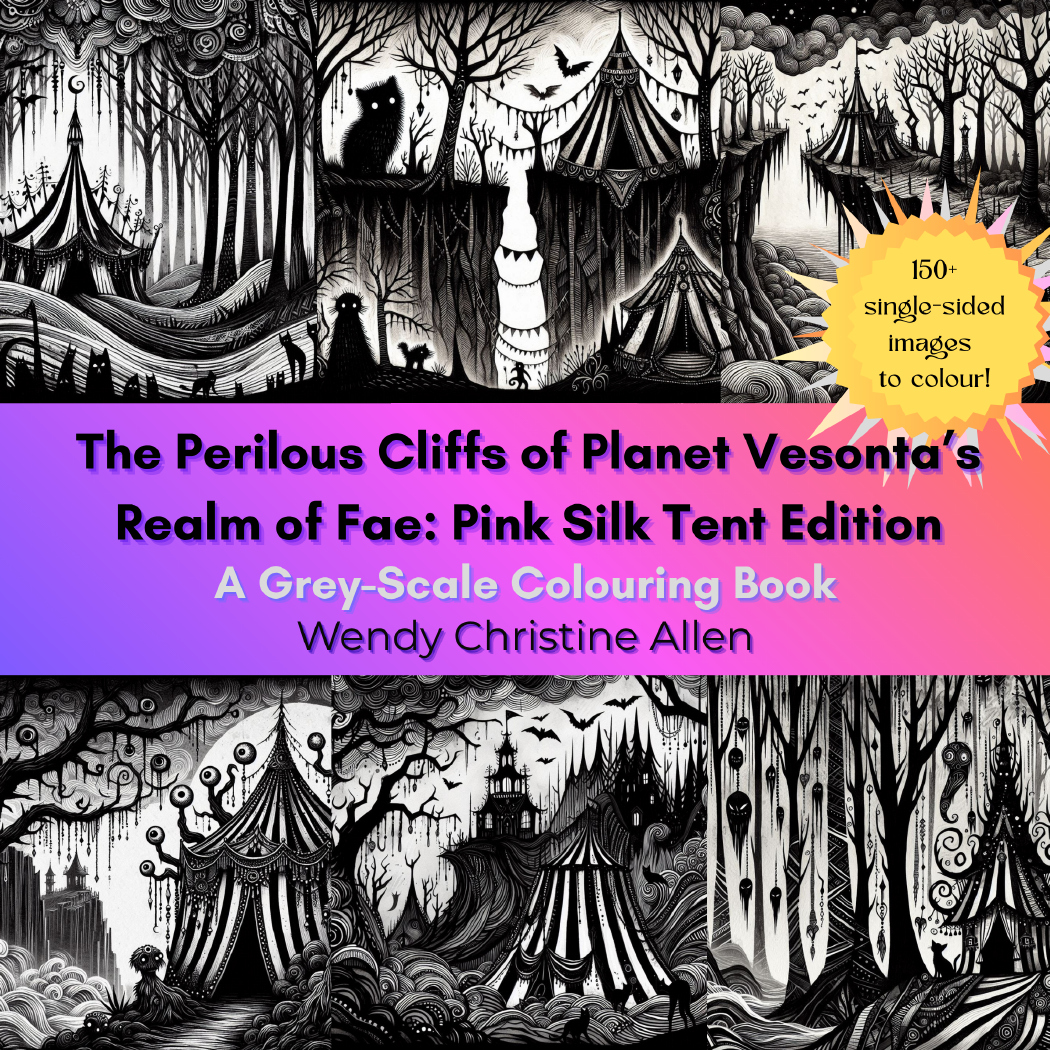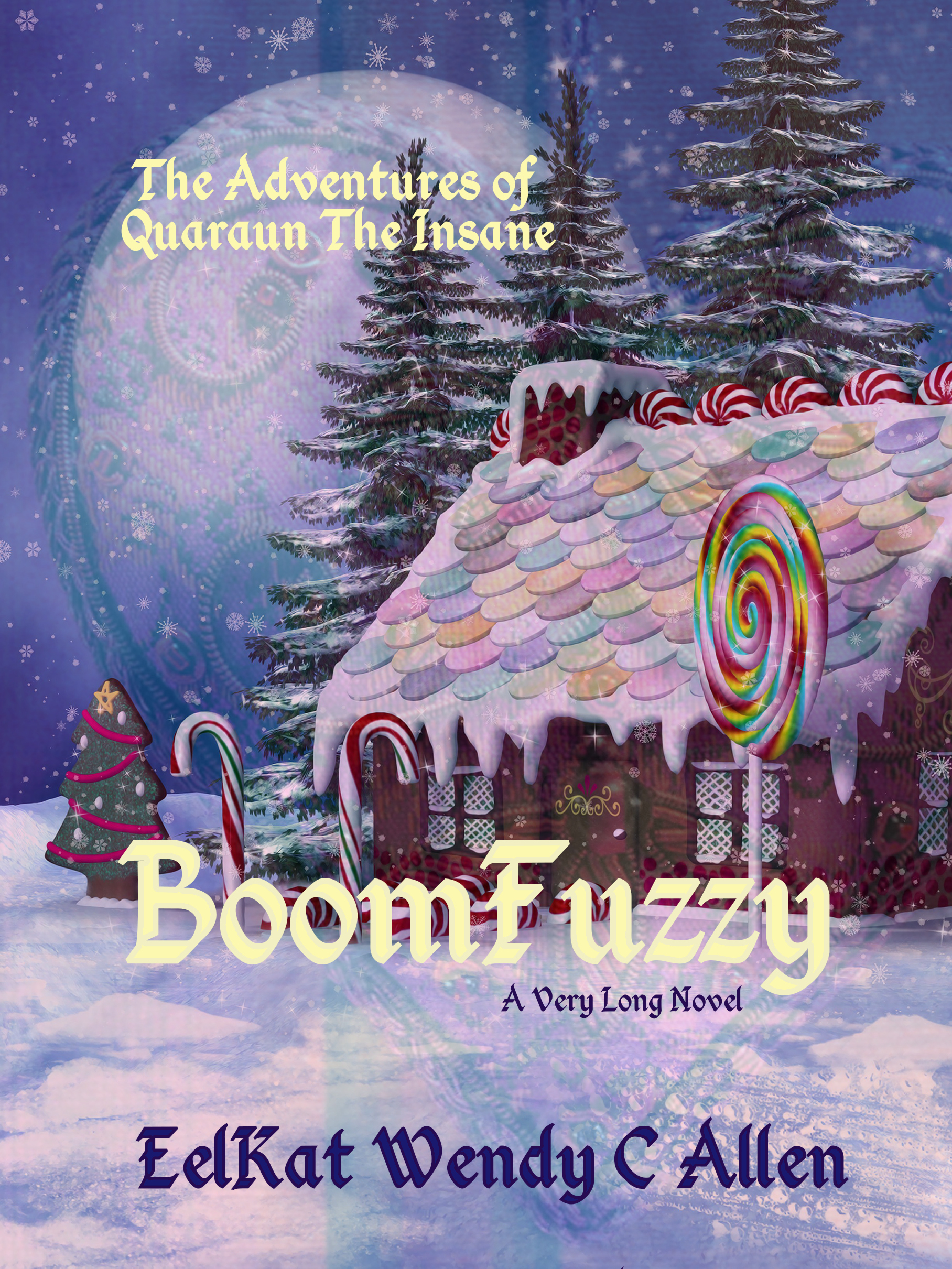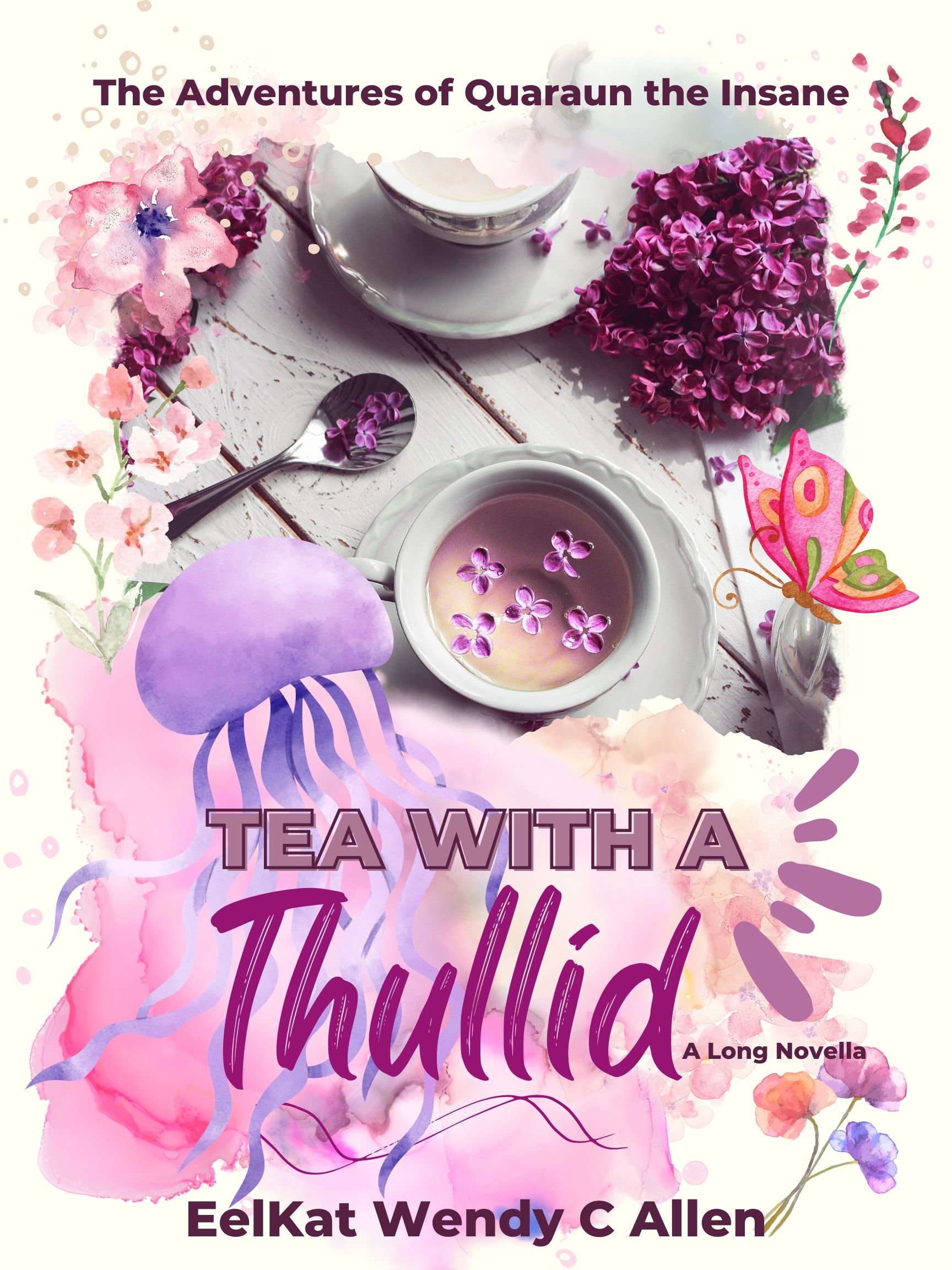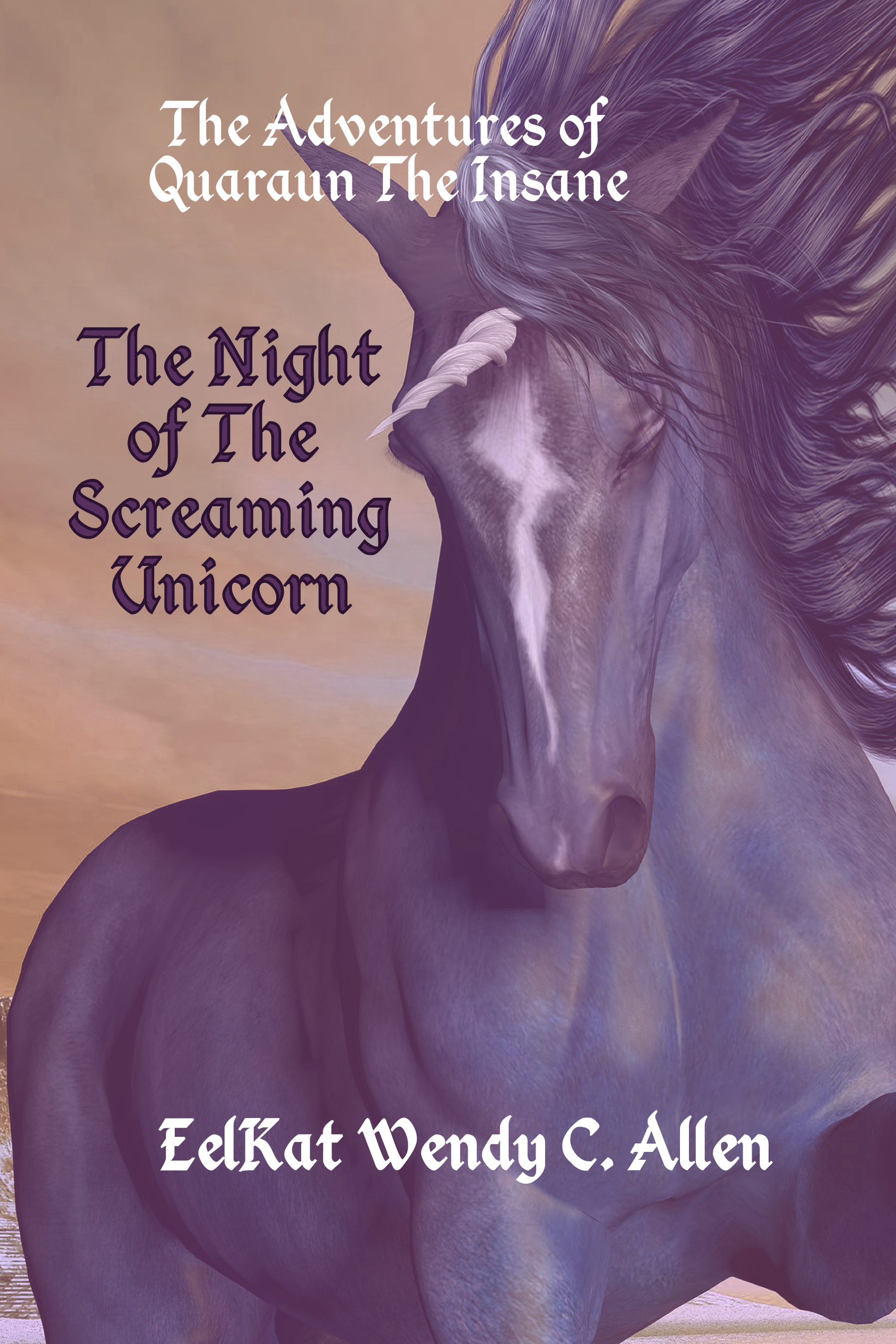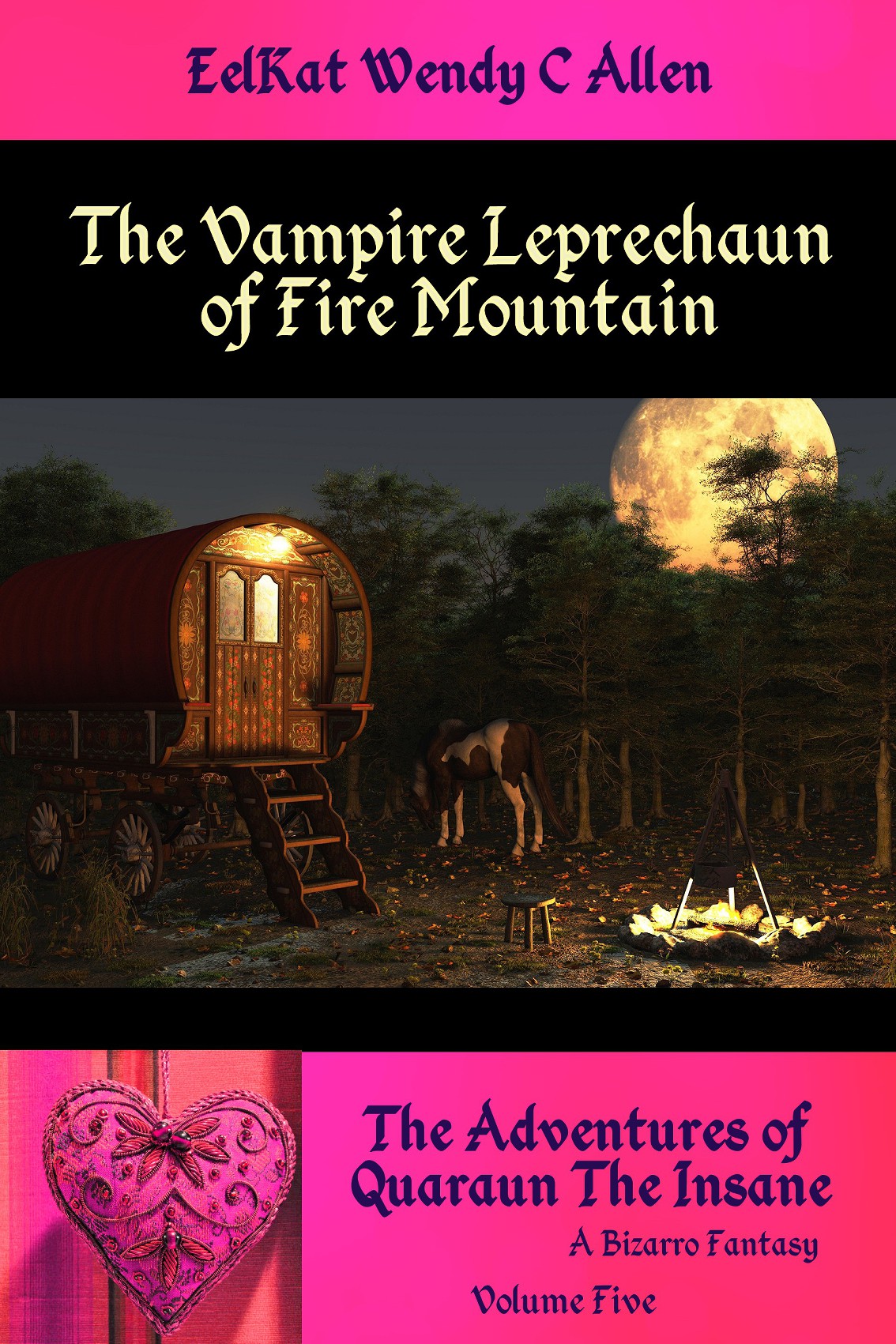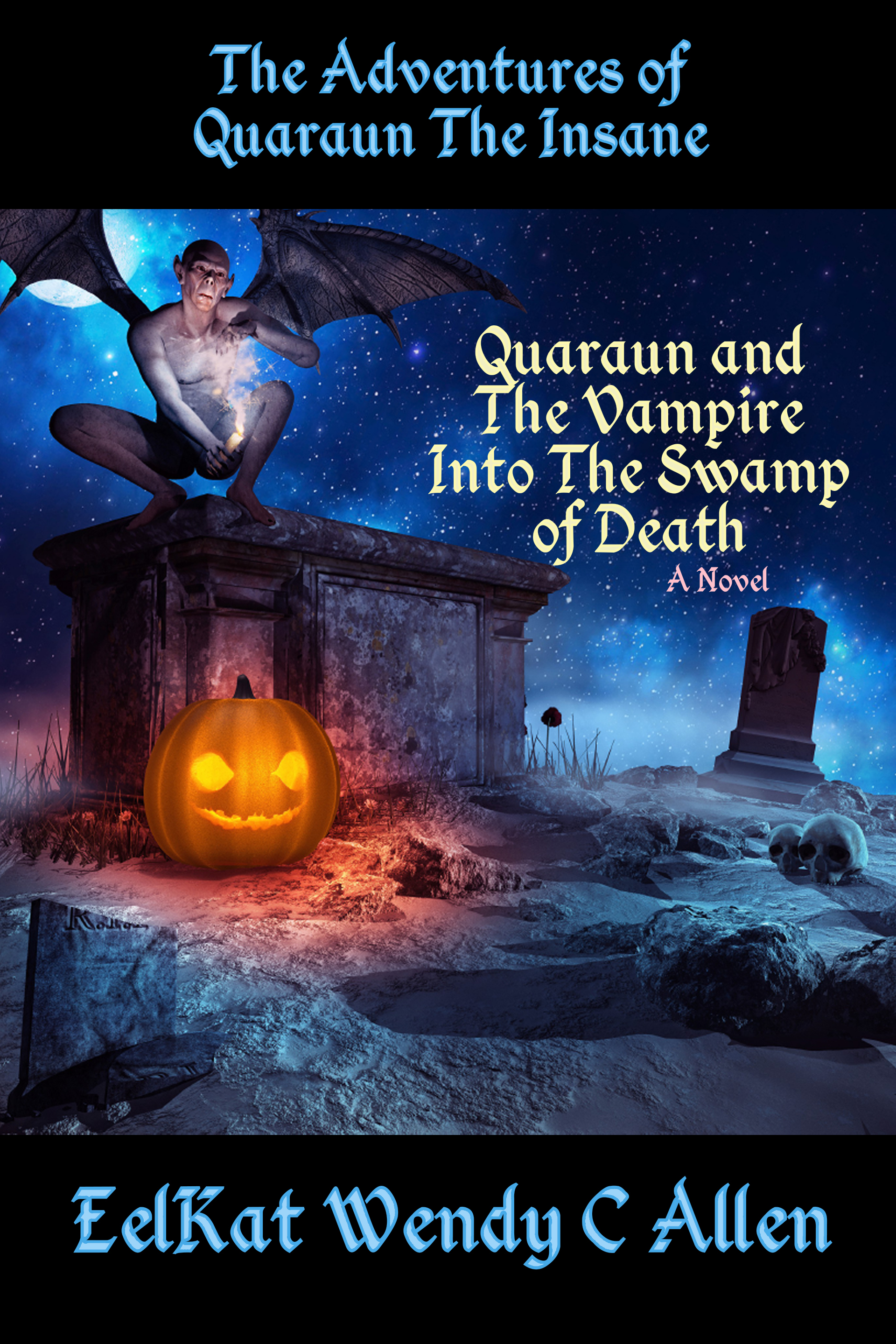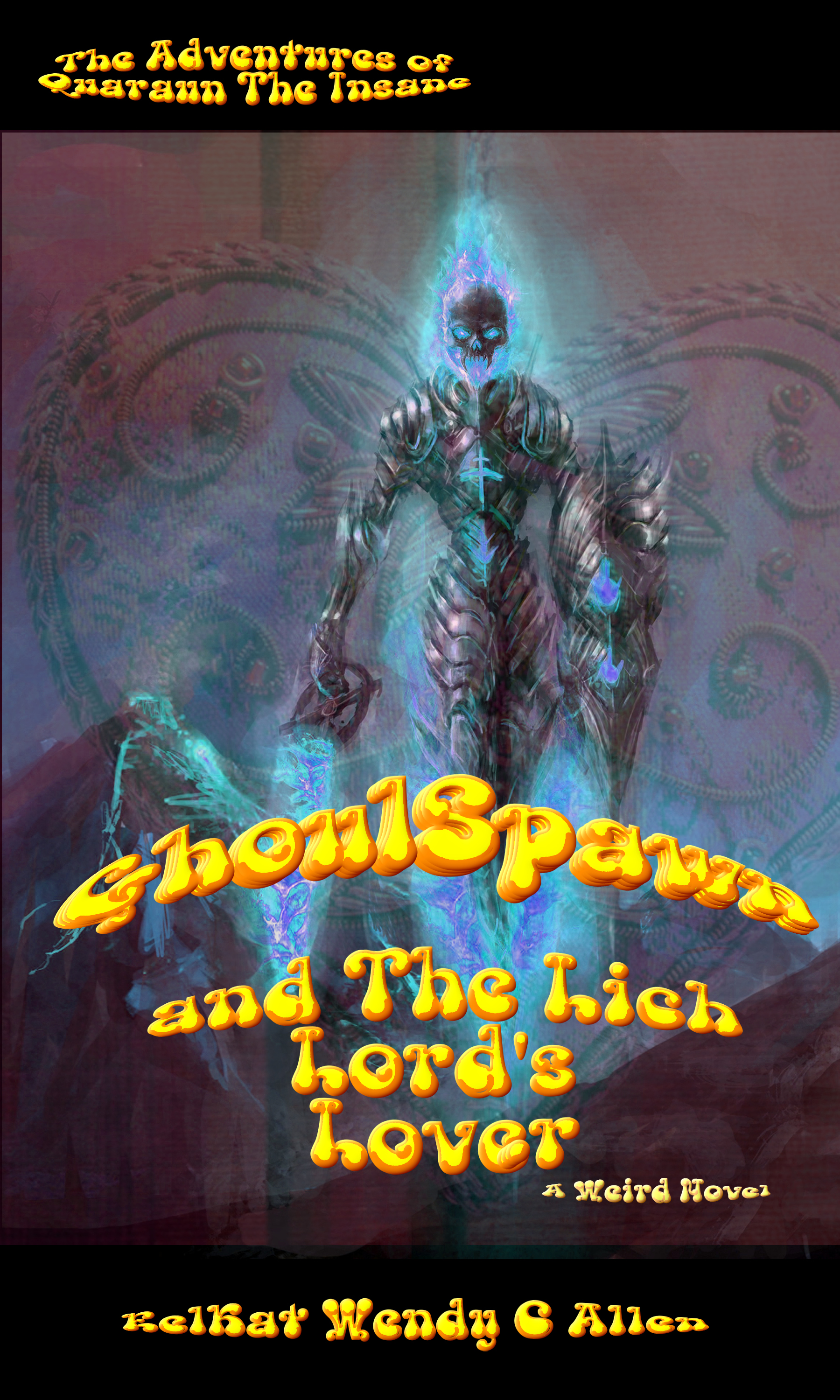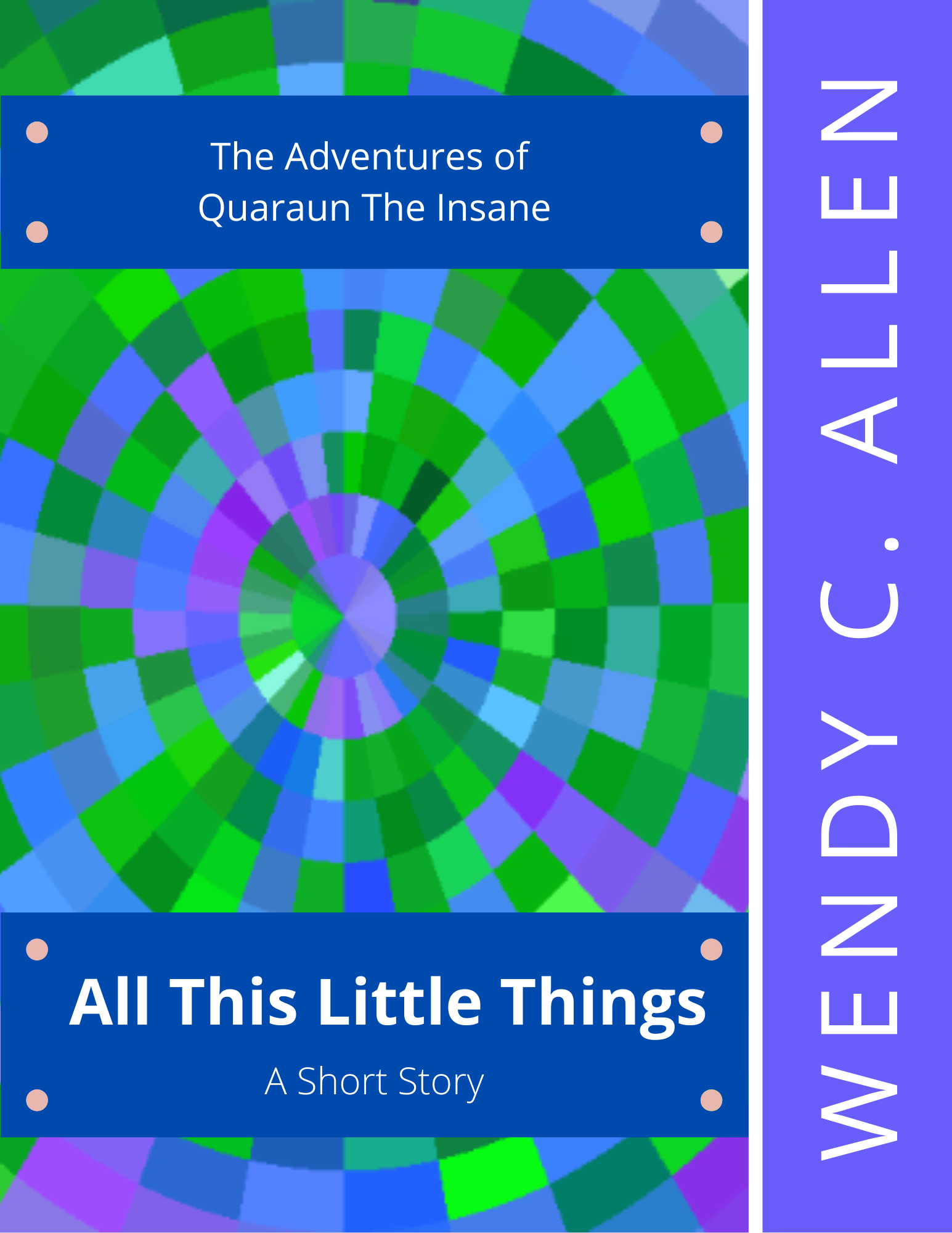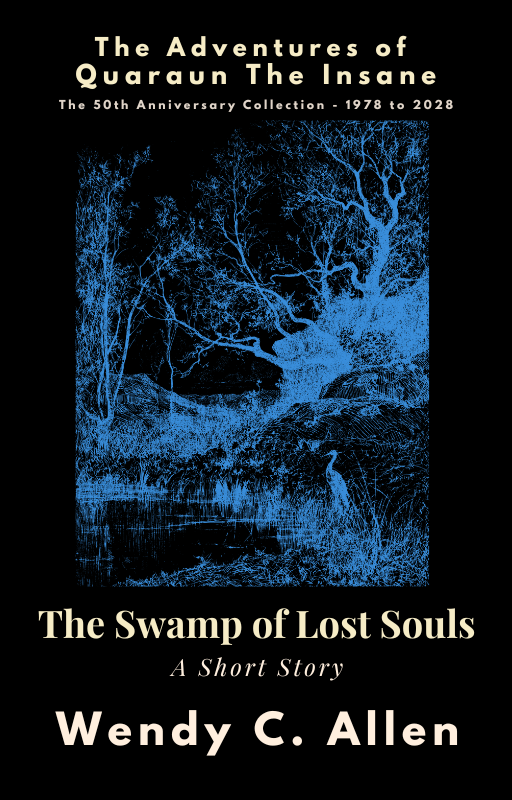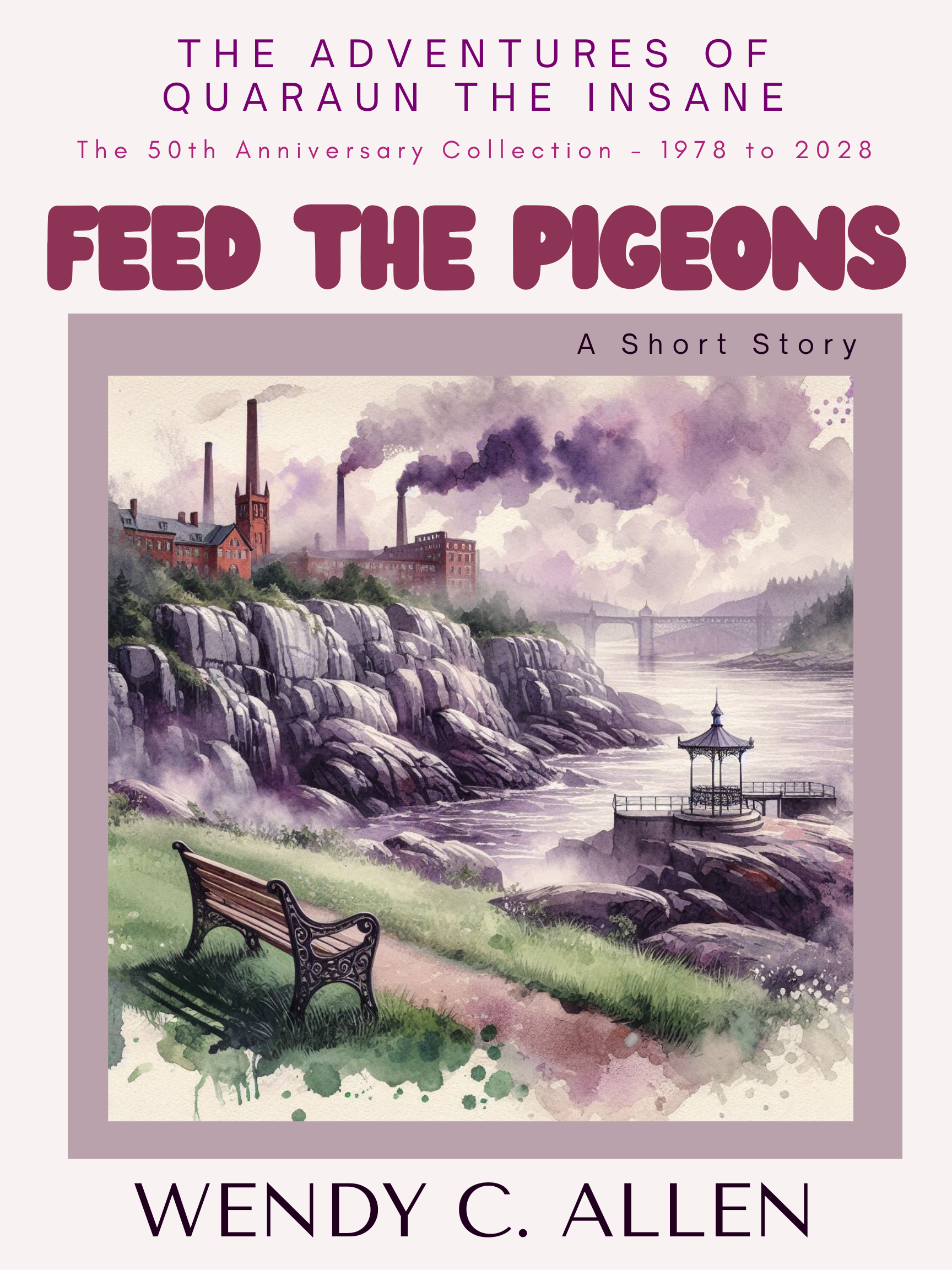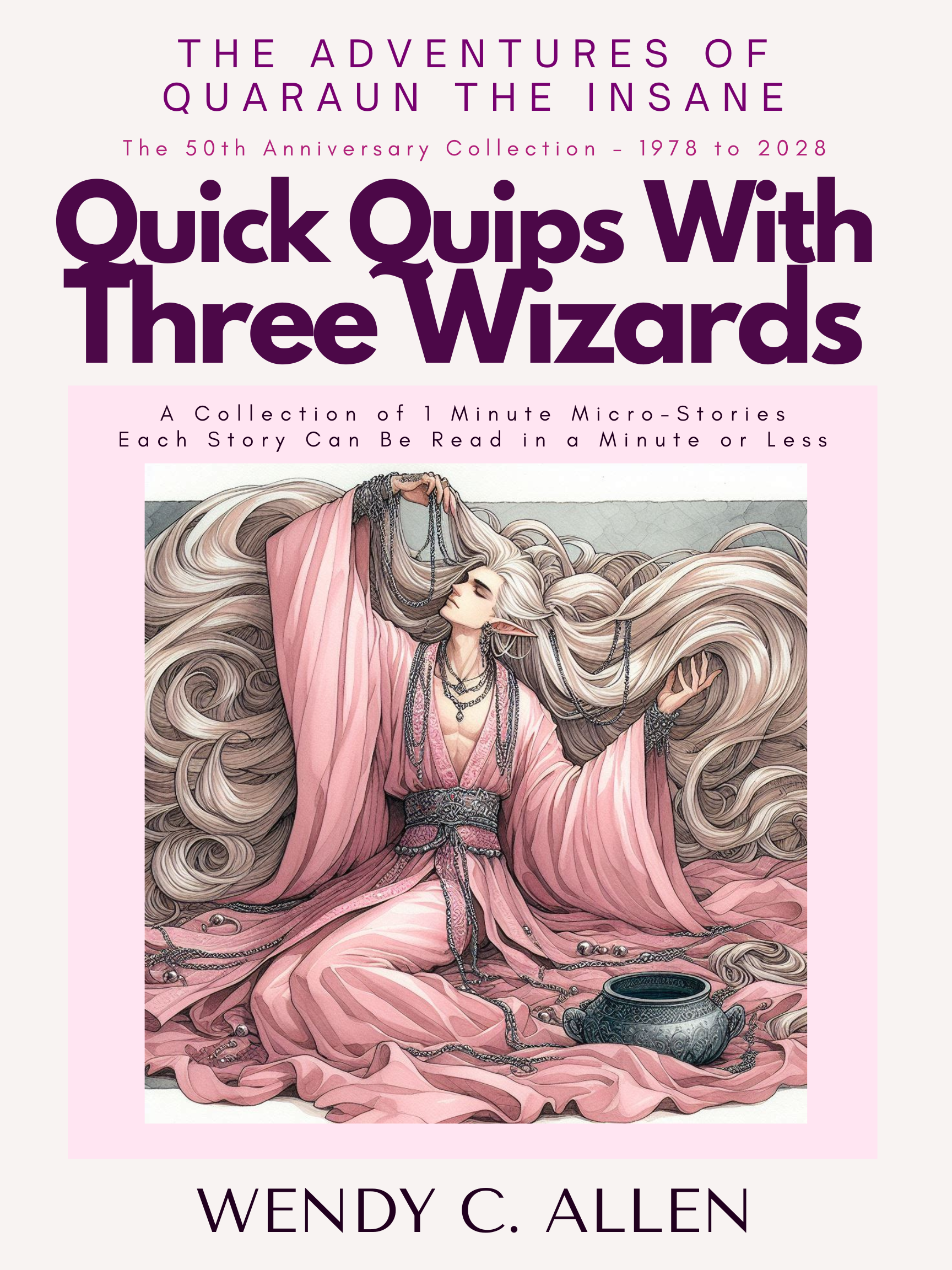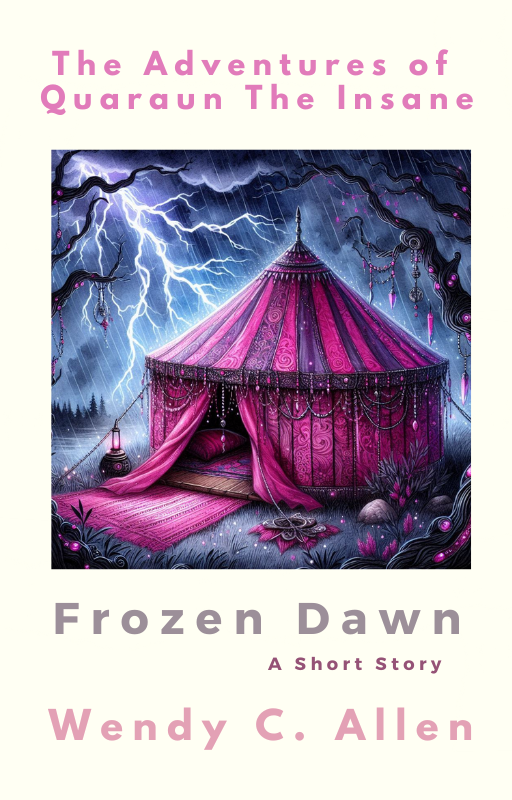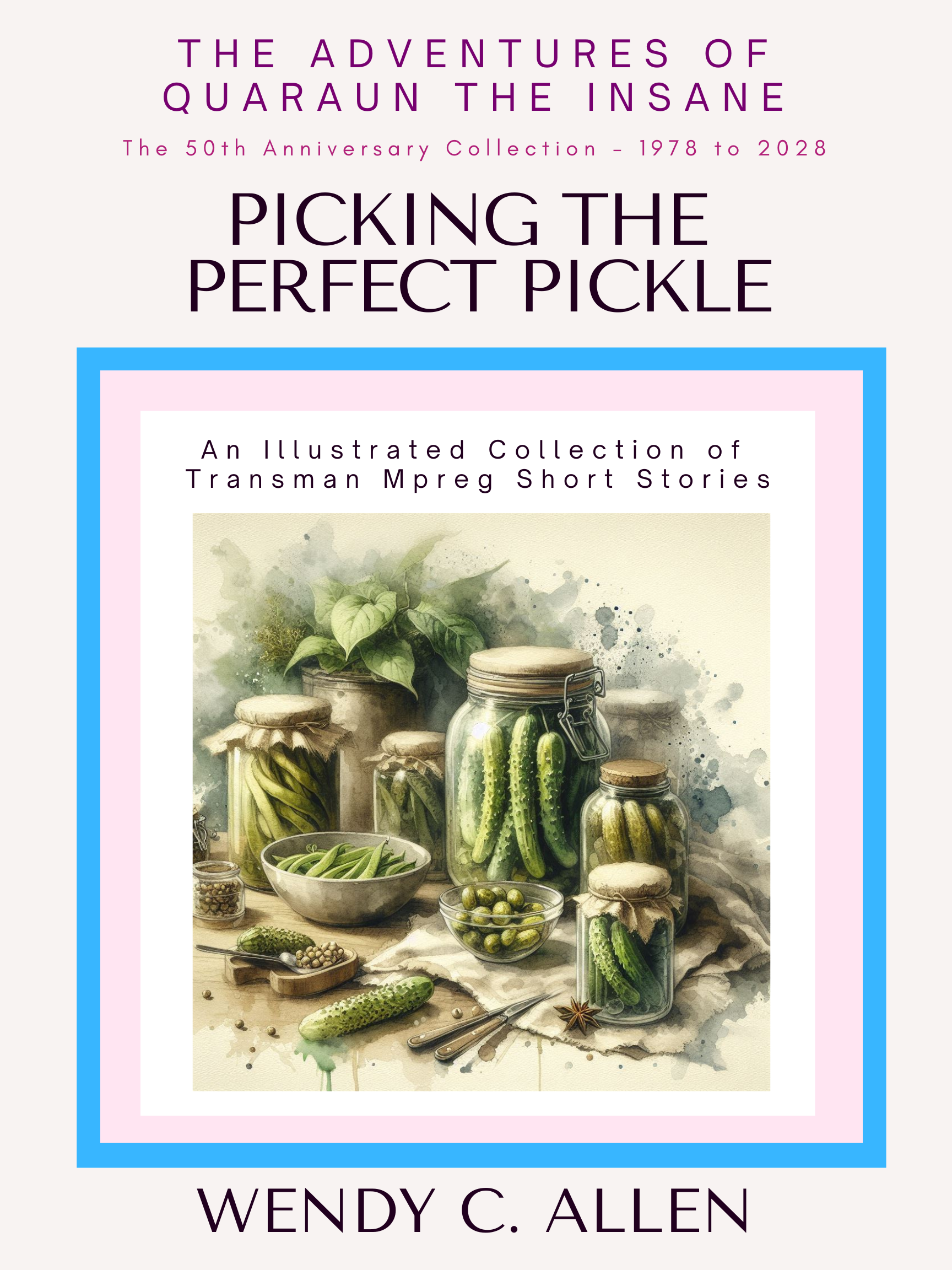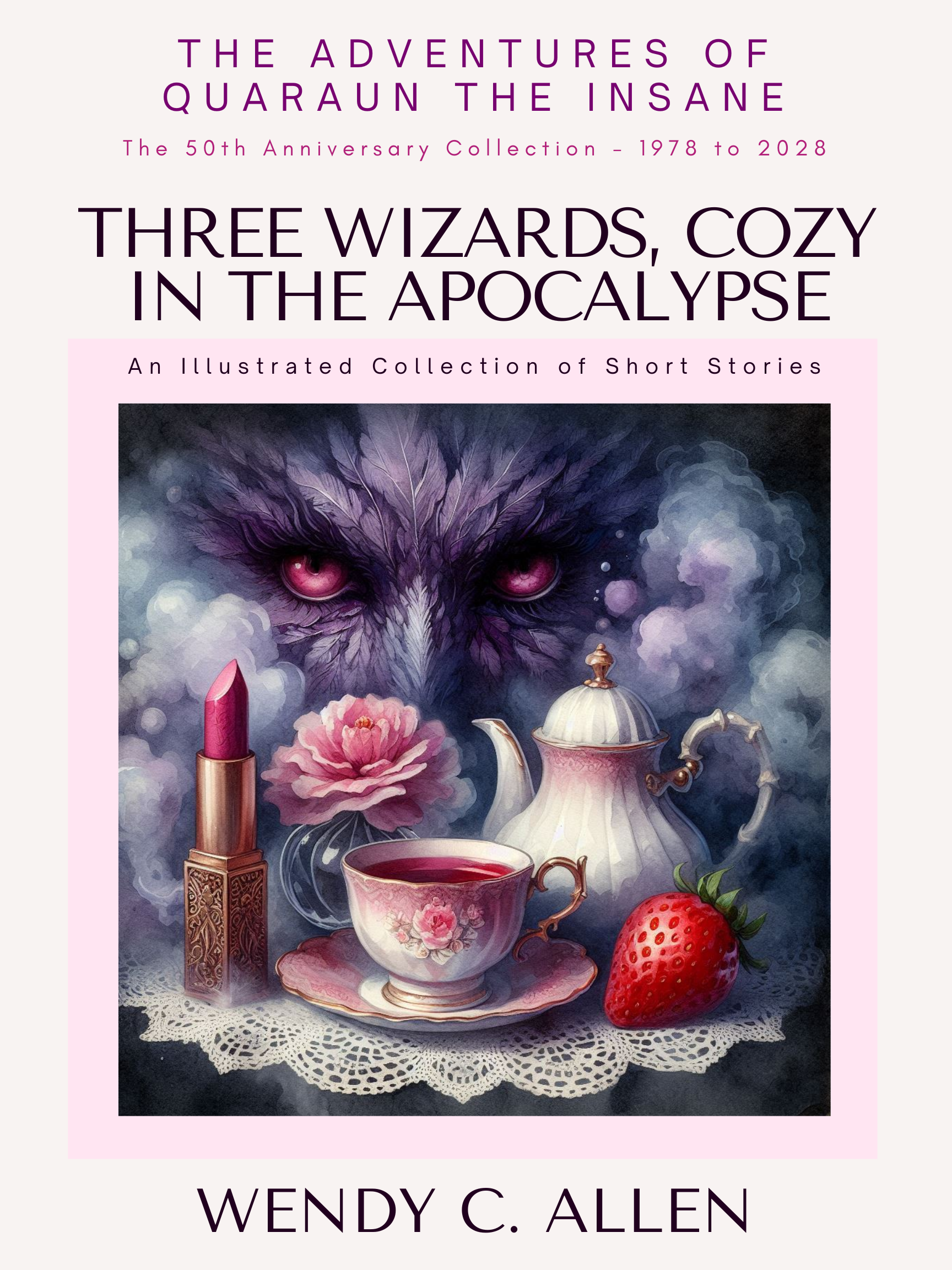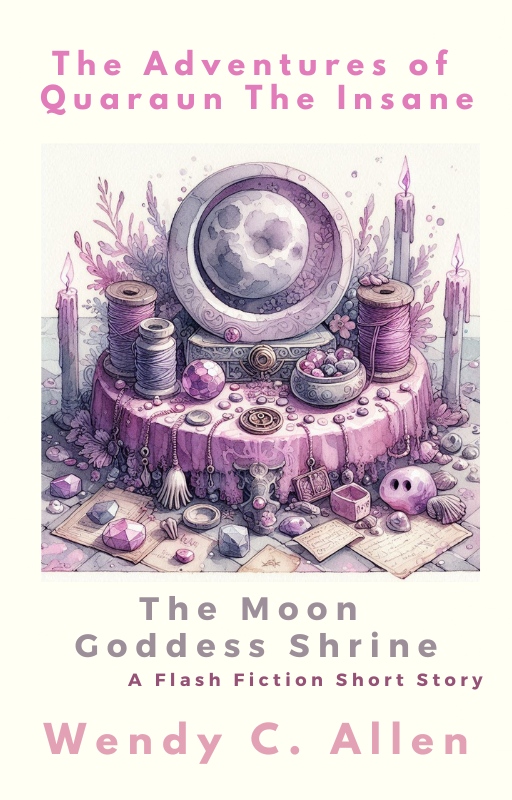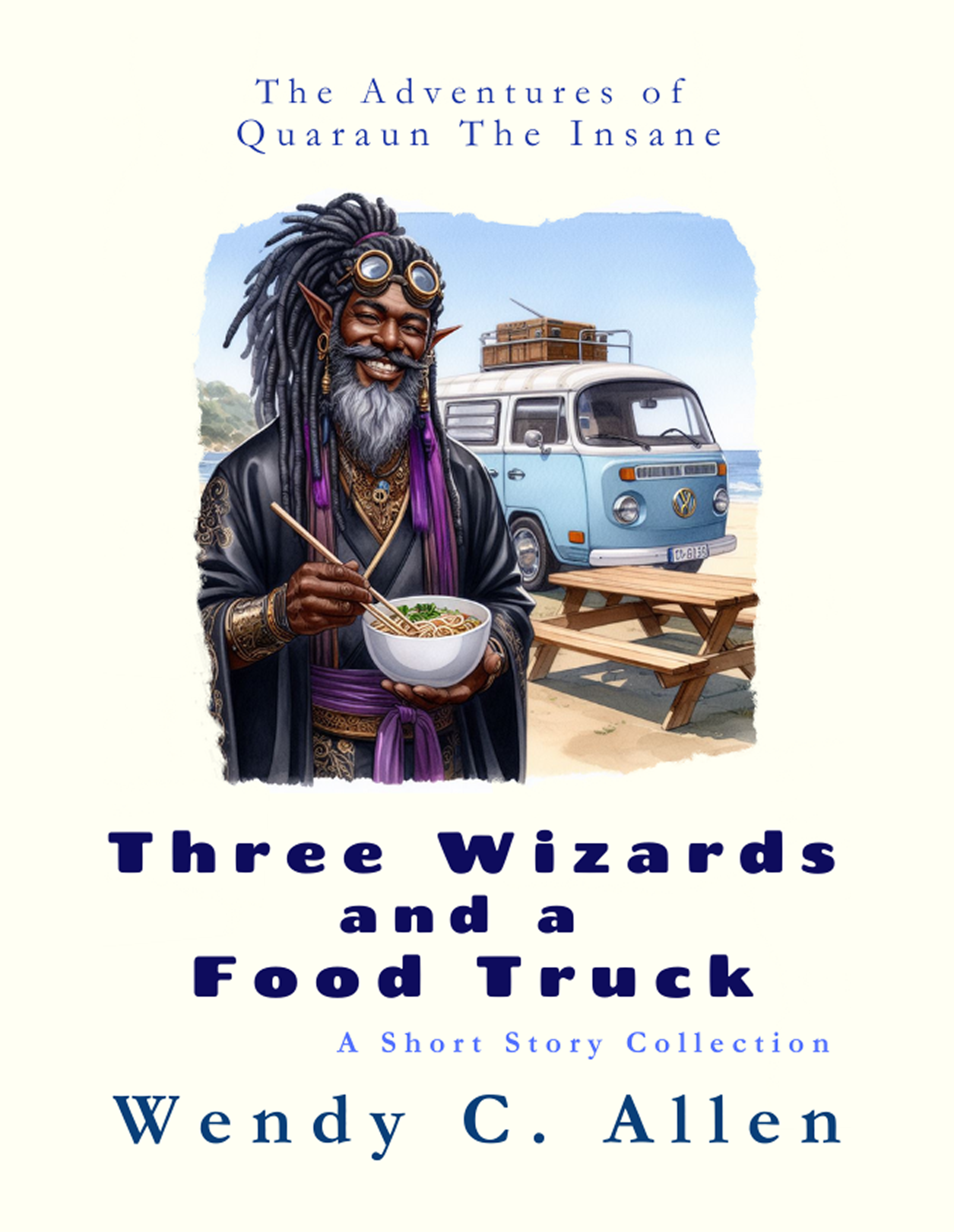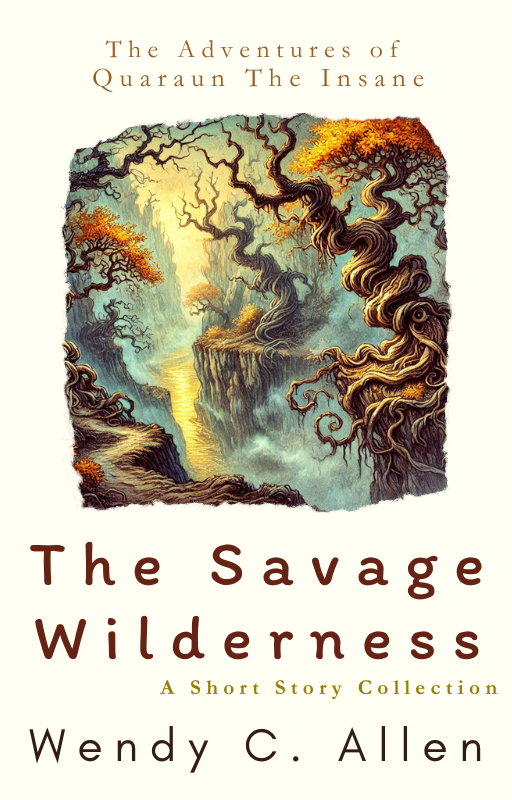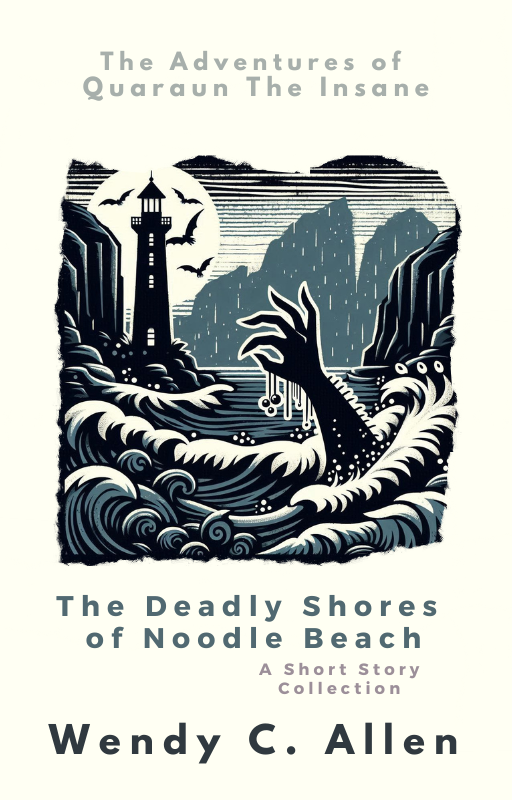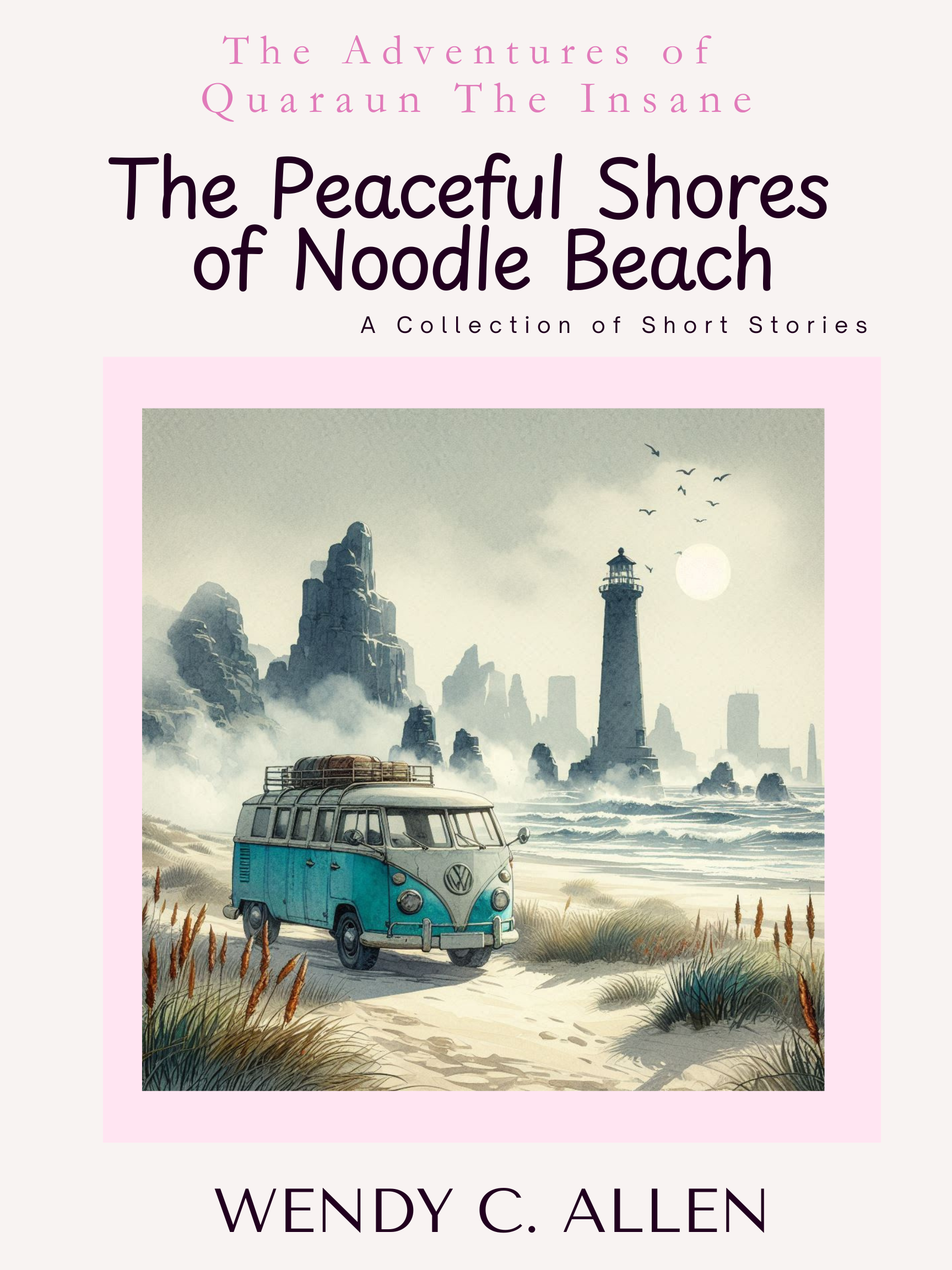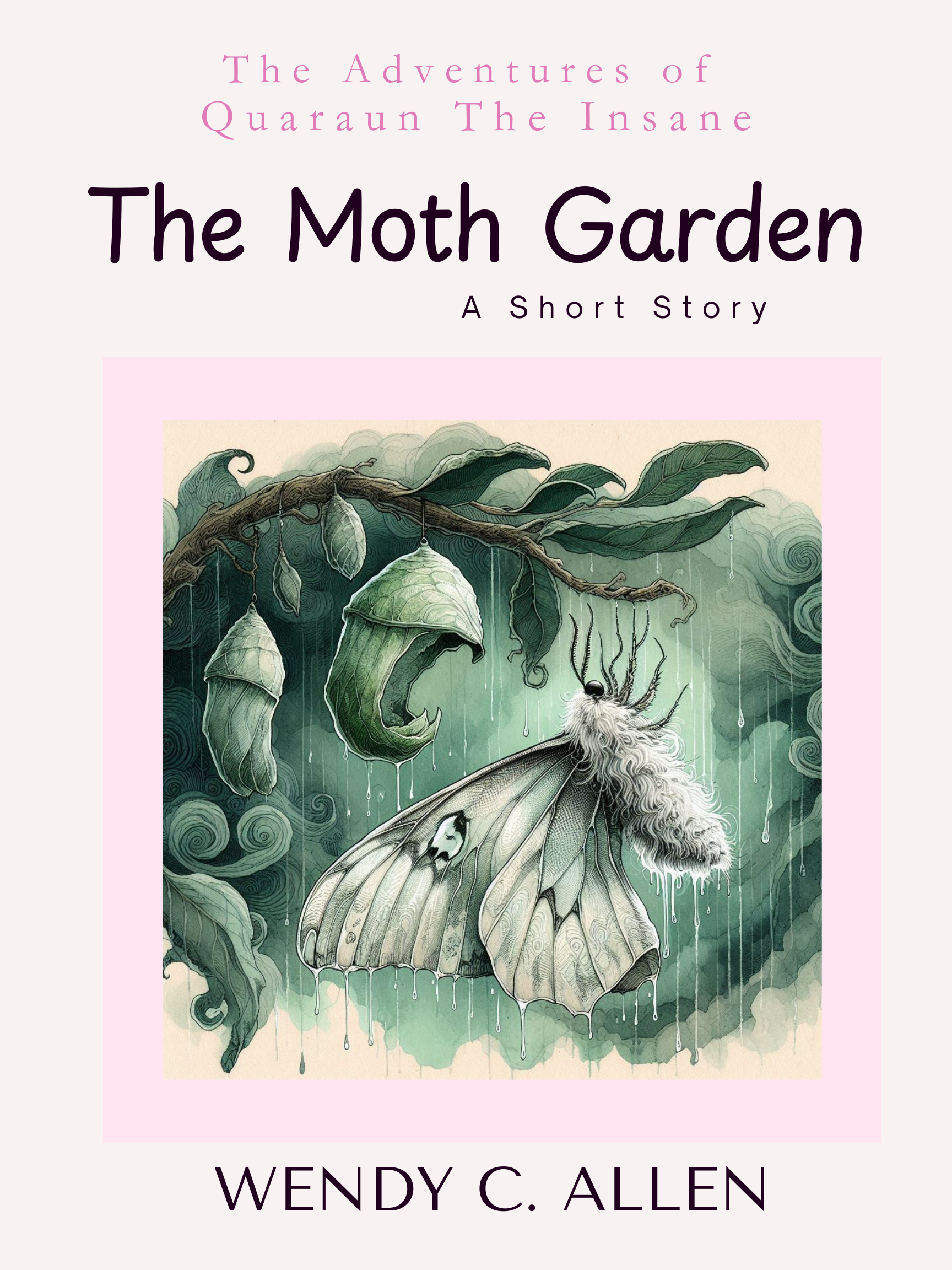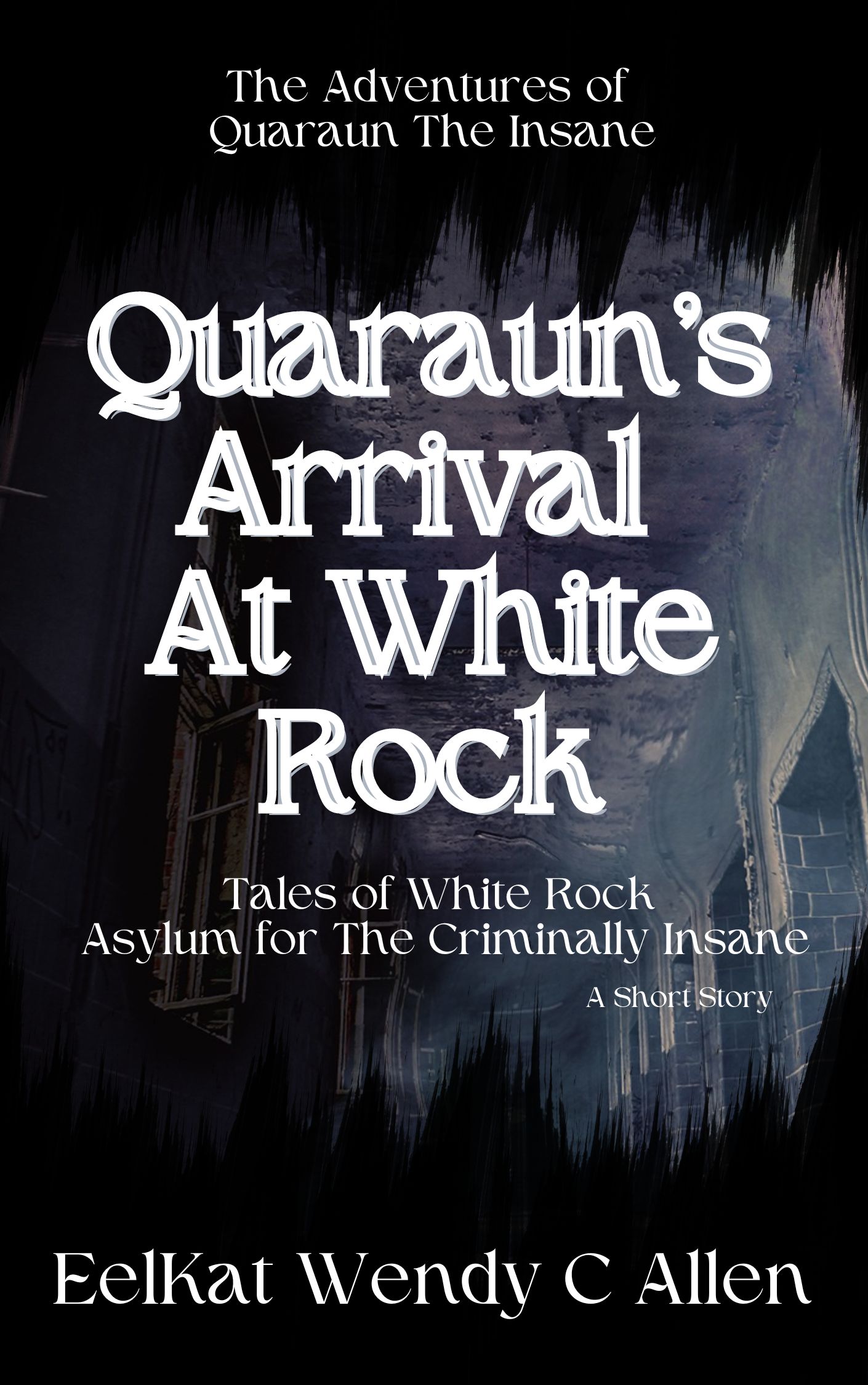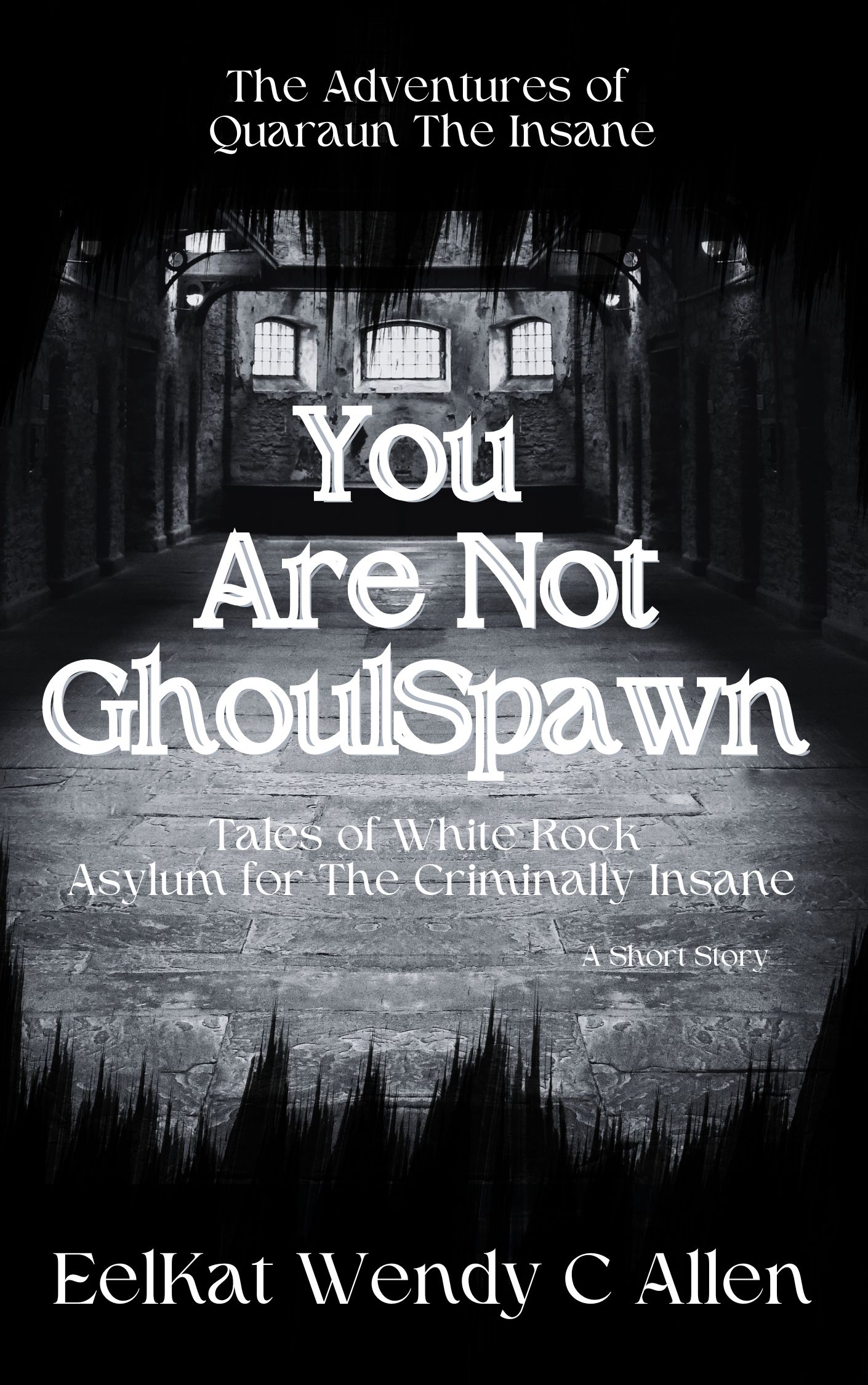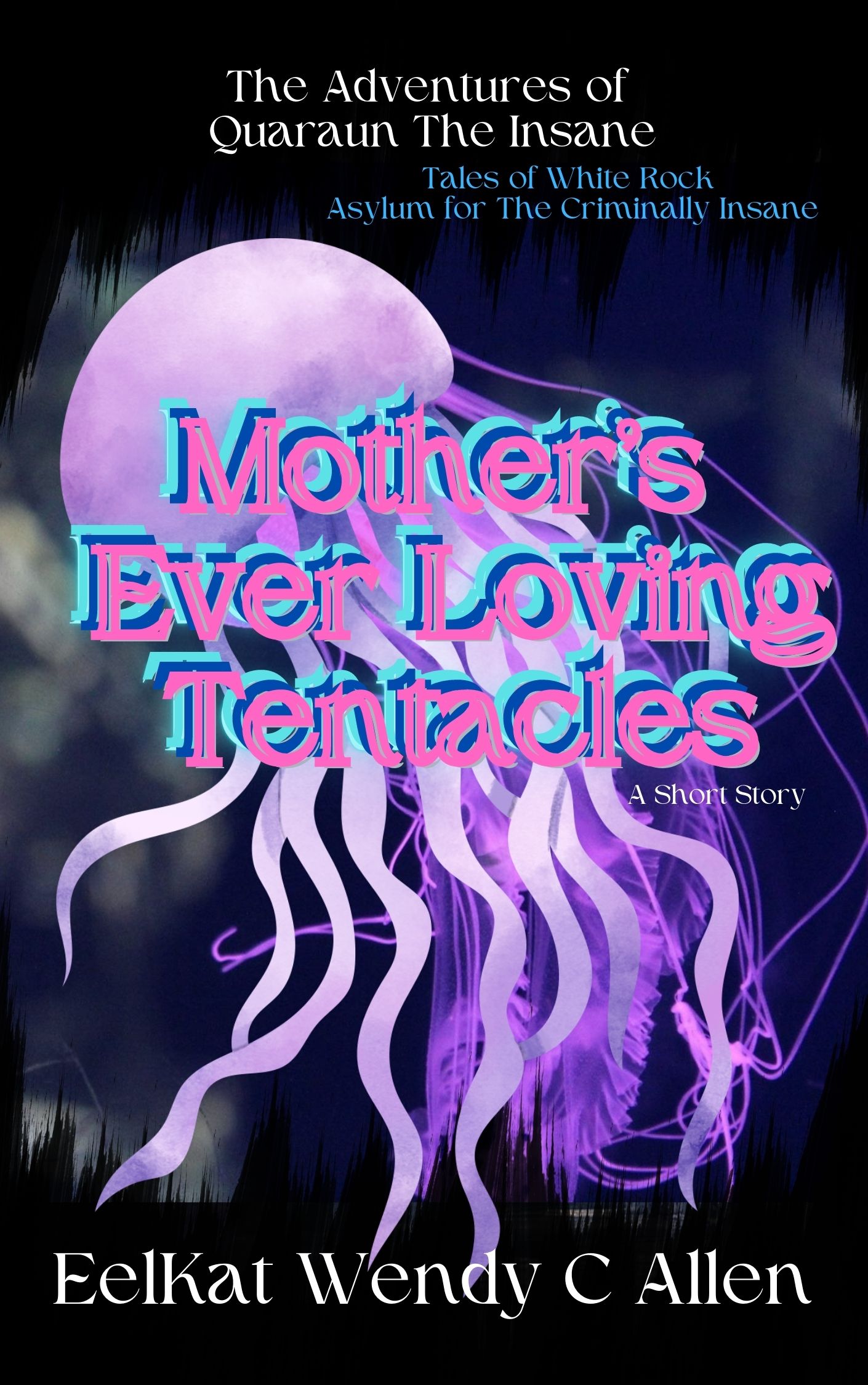Counting Down to the 2028 50th Anniversary of my first published book (September 23, 1978)
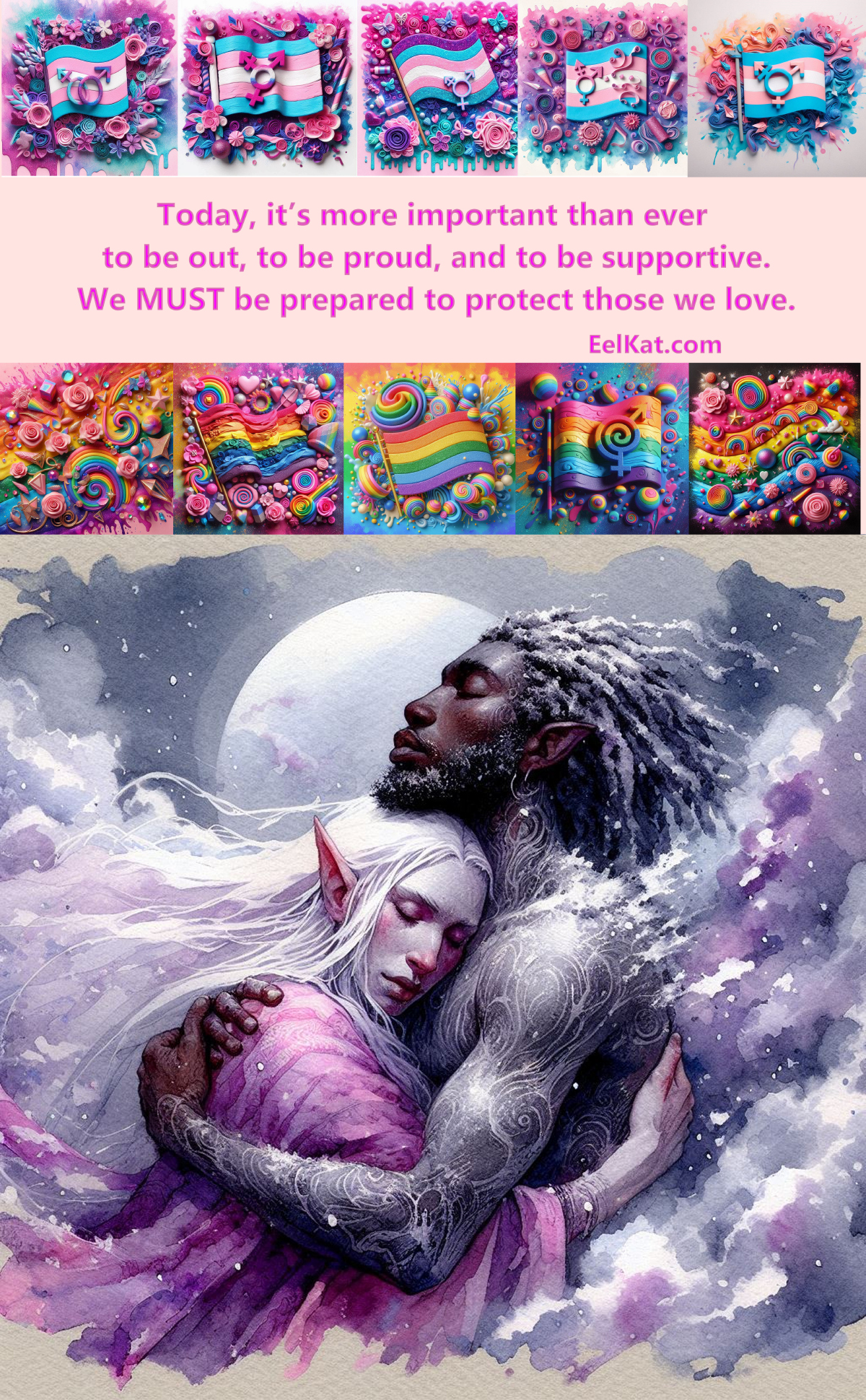 Transman Quaraun (The Pink Necromancer) and his husband King Gwallmaic (aka BoomFuzzy the Unicorn) King of The UnSeelie Court. Main characters of The Adventures of The Pink Necromancer series. Transman Quaraun (The Pink Necromancer) and his husband King Gwallmaic (aka BoomFuzzy the Unicorn) King of The UnSeelie Court. Main characters of The Adventures of The Pink Necromancer series.
|
This website is a safe zone for LGBTQAI+, pagans, polys, trans, neurodivergent, disabled, mobile aid user, minority, cosplayers, otherkin, furries, & BIOPIC communities.
If you are a hater, you can go fuck yourself.
Happy 2026!
It is our 30th anniversary here at Space Dock 13!
On the web since 1996!
You have encountered an extremely old website that continues to exist in old web ways, the same way it has done for now three decades.
In spite of being now 30 years old this year, started in 1996, it is still heavily active and old pages updated daily, new pages added daily, still now in 2026. All hand written, all hand coded (no AI), all by me, same as it ever was.
We Still Exist: The Old Web Did Not Go Away, You Just Forgot How To Find Us
|
This site was NOT designed for mobile devices (as they had not been invented yet when I created it) thus this site looks best on a computer, at 1280x768 or above. |
This is a very old website created in 1996, so, yes, javascript is needed for the site to work as it should. If things don't function, you may need to update javascript drivers on your device |
This site tries to be mobile friendly but it's been online since 1996, so old pages may not load right on mobile devices, and as this site has had pages added near daily for 30 years there are now over 20k pages here. |
Having started out in life as a GeoCities site, this site contains glitter, bright colours, blinkies, moving gifs, and other things the old web was known for. |
Fight Scenes
and How To Write Them
Or not...
"i'm a writer and i wanted to know how to handle my fight scenes so that they sound realistic to some degree can you give me a hand?
while my story has superheroes in it, i want to make sure that they're attack and defense and counter attacks don't completely defy the laws of physics and help would be appreciated."
Uhm, okay, you need help with a lot more than fight scenes. My first suggestion is you learn English Grammar. My second suggestion is, capitalization. You are having some serious capitalization issue here. You did not capitalize a single word, not even first words of sentences or the pronoun "I", both of which you should have learned in 1st grade at age 6.

If you didn't go to school, will guess what, neither did I. I have Autism, I was a kid in the 1970s before the equality laws and integrated classrooms where invented, so I wasn't allowed to go to school, I wasn't even allowed to go to the special classes on the little yellow bus. No. Autism = no school period, but did that stop me from my goal of wanting to be a writer (keeping in mind by age 6 I had already published 4 books)?
No.
It did not.
I read every book I could find on English Grammar and Composition.
At 9 years old I set myself the task of diagramming 100 sentences each and every day and I did this for 12 years. Why? Because I wanted to be a writer and I wasn't going to let some snotty nosed government tell me I wasn't allowed to go to school and learn how to write, so I taught myself.
If I can do that without having gone to school, because I was "too retarded" to go to school, than there is no reason why you or anyone else on this damn planet who wants to be a writer, should be using sloppy, lazy writing and blatantly refusing to capitalize words correctly.
A typo is one thing, but you didn't capitalize anything. NOT ONE LETTER. And that means one of too things:
1) You are too lazy to take the time to follow the rules, or too lazy go out of your way learn the rules. Which means you are not very motivated to set your feet on the path of a writing career.
or
2) You don't really care what I have to say. You don't think my time is worth the effort I put into answering your questions, so you don't think you have to bother formatting your question correctly. I got news for you, when ever you contact an author, editor, or publisher, and start your letter with "I'm a writer" you better make damned sure that you look like a writer, act like a writer, and talk like a writer, by making your writing as absolutely perfect as possibly, or we are going to laugh your ass into the funny farm, because there ain't no way this side of hell an author, editor, or publisher is going to believe that you are a writer if you can't even write a simple question legibly.
Okay?
Until you know the rules of writing and are willing to follow them, don't say "I'm a writer", because I can see from your lack of writing know how that you are not a writer. Instead say "I want to become a writer".
If you are a regular reader of my column, than you should know that you can not use sloppy grammar in your questions to me, and expect me to not call you out on it. It really annoys me when someone claims to be a writer but they don't take the time to edit their questions. Your correspondence with authors, editors, and publishers is a very important part of establishing your credibility as a writer. You must use proper grammar when corresponding with others in the business if you want to be taken seriously.
Now don't go getting discouraged. I'm not saying this to be mean or chase you of your writing dreams. I'm saying this to give you a kick in the pants and open your eyes to the fact that if you want to be a writer, than you need to shape up and get your act together here. If you want to be taken seriously as a writer, you need to buckle down and learn the rules of English Grammar and put them to use. Because you may have the best idea, the best story, the best plot, the best characters under the sun, but none of that matters if you can't get that story done on paper properly.
No matter how good your story is, if you don't know how to get it on paper correctly, you will never be published. Okay?
>>>"i'm a writer and i wanted to know how to handle my fight scenes so that they sound realistic to some degree can you give me a hand?
Well... no. I don't write fight scenes. Were you under the impression that I did?
I am wondering why you sent me this email.
You are asking me for help to do something that I don't do.
Why exactly?
Here's another tip: Before you email an author, like you just did when you emailed me, make sure you first read a bit of the author's work ahead of time, to make certain that the author in question, actually does the thing you are requesting help with.
I've gotta say, I'm not very impressed by your email.
First you tell me your a writer, but you don't even know basic Kindergarten Grammar, let alone High School or College level Grammar, which you MUST know and PRACTICE if you want to be a writer.
Than, you contact me to ask how to write a thing, that I don't even write to begin with.
Research.
Research how to write fight scenes.
AND ...
Research what an author writes before you contact that author asking them to teach you how to write something.
>>>while my story has superheroes in it, i want to make sure that they're attack and defense and counter attacks don't completely defy the laws of physics and help would be appreciated."
Write what you know.
It really is as easy as that.
Don't write things you know nothing about.
Very simple.
I know nothing about fighting. So I can't very well, write fight scenes, OR teach you how to write them either.
I would suggest, that you watch videos teaching stunt men how to fake fights and make it look real. Than apply what you learn from those to your writing. Watch action movies with fight scenes in them and describe what you see.
Also....
>>>while my story has superheroes in it, i want to make sure that they're attack and defense and counter attacks don't completely defy the laws of physics and help would be appreciated."
Do you know what a superhero even is?
Superheroes defy the laws of physics by their very existence.
Superman flies.
SpiderMan climbs walls.
Defying the laws of physics IS kind of what makes a super hero a super hero.
But than after all that, are you REALLY CERTAIN that you actually WANT to have fight scenes in your novel?
Think about it. There IS a REASON why writers DO NOT write fight scenes in novels.
Fight scenes are boring to read. Fun to WATCH in a movie, sure, but when was the last time you READ a fight scene in a novel?
She punches left. He dodge right. Yawn! No one wants to read line after line of fancy foot stepping, hand swings, and ballet moves.
Just say: "She punched Steve and a fist fight broke out between them" and be done with it, like every other writer does. The reader knows, she swung the first punch. and Steve punched back and the two of them had a brawls.
The reader saw the entire thing in their mind from just that one line and you don't need to spend time trying to figure out how to write step by step of every swing.
He swung his sword. The other guy parried. Dull. Dry. Boring. No one wants to read a fencing lesson.
Just say: "Larry pulled out his sword, lunged forward, and challenged Steve to a duel. Poor Steve, every one was out to get him today. Sword clanged and clashed. Steel swinging. Steve dodged, parried, rolled and ran. He wasn't one for fighting. He just wanted to get out of there."
The reader can see Larry lunge, they can here the swords clashing, they can see Steve's reaction. The whole fight plays out in under 5 lines and the reader filled in the details, so didn't need to write them.
When it comes to fight scenes, less is more. Give the reader JUST what they need to know. Let the reader's mind do the rest.
You might want to try reading a few Action, Adventure, Fantasy, Historical Fiction, and War Story novels. It won't take you long to realize NONE of those genres contain fight scenes. It just isn't done.
If you were someone who read books, you would know that already, too.
The fact that you don't that, tells me, not only do you not know grammar, not only to you not do research, but now on top of that, you also don't read novels enough to know how novels are written and what's do and do not include in them.
The above was written in 2007...
Today is June 9, 2021,
it's been 13 years since this page had an update...
let's update this page with some added info:
How much action should be in a fantasy book?
I write Epic Length High Fantasy. Since 1978 there have been 130+ volumes published, each volume is around 400 pages (about 180k words per novel). That's around 24Million words published for a single series about an Elf wizard on the run wanted for murder and a motley crew of Faeries, Gnomes, Demons, and other races all mages, whom he encounters and interacts with along the way.
In 43 years, 138 novels published, and 24Million words, I've YET to write a battle scene, a fight scene, a war scene, a combat scene, a political scene, factions, soldiers, or anything else in any way related to wars, battles, fighting, intrigue, etc.
>>>How much action do you really need in a fantasy book or how long can you go without having a big battle scene in a book before it gets boring?
None.
In fact, I find battle scenes boring and I wouldn't/don't read Fantasy novels that contained them.
But different people like different things.
If you write a lot of fight scenes, than, I'm not your ideal reader, but that doesn't mean there aren't readers who think just like you and want the type of novel you want to write.
But this just shows that we are different and have different tastes.
Nothing wrong with that at all.
You keep right on reading and writing what you like and I'll keep right on reading and writing what I like.
Plenty of Fantasy novels don't contain any at all, in fact MOST Fantasy novel are completely 100% devoid of combat, fights, battles, wars, etc. It really is rather unusual to find such things in Fantasy novels.
>>>Do you need action in every chapter or every 2 or 3 or what?
Uhm... you don't read Fantasy novels do you?
There is a common misconception among writers new to the Fantasy genre, that because Fantasy movies and Fantasy RPG video games are filled with non-stop battle, that therefore Fantasy novels must be so as well.
Movies REQUIRE action because it's a visual medium and people will get bored watching 2 characters sit and talk. But novels rarely have any real "movie style" action in them. Try reading a few Fantasy novels and you'll see.
A prime example would be Hermione's Save the House Elves Club.
That was a MAJOR plot point in the Harry Potter novels, that took up more than half the story, and revolved around the students sitting and talking and debating and talking and voting and talking and petitioning and talking and making buttons and talking and handing out buttons and talking, and in the novels it worked really well, it held your interest and you wanted to keep reading their dialogue because it was interesting dialogue and you wanted to find out what was going to happen to the House Elves, was Hermione going to be able to pull this off and save poor Dobby and his friends?
But, the movie producers rightly excluded that entire PRIMARY PLOT POINT from the Harry Potter movies because, well, how boring would it have been to watch hour after hour after hour of kids sitting around talking, debating the rights of house Elves, the way they had done in the novels?
It was fascinating to read in the novels, but it would have been hell to watch in a movies. Movies require steady, non-stop action to hold the eyes of the viewer on the screen. Novels aren't visual so they don't need that. And when you try to put that same kind of action in a novel, it comes off boring to read.
Two other good examples of this are Treasure Island and 20,000 Leagues Under the Sea. Both have movies that are full of non-stop fight scenes and action, and yet, there are no fight scenes or "action" in either novel.
Read classic Action Adventure novels like Treasure Island or 20,000 Leagues Under the Sea. There is NO action in them. ZERO. And yet they are the best action novels ever written. Why? Because they focus on the internal mental and emotional struggles of the characters.
You feel like you are there with Jim in that hut, as he sits there looking around at the dead bodies and wonders if his friends are still alive. He monologues the whole chapter. Worry. Fret. Panic. Worry. Fret. Panic. And you feel it. You feel how terrified he is that night is coming and the pirates will return and kill him next. It's terrifying. And it's all dialogue. Full on 100% dialogue. There no actual action. But it FEELS like the action happened to YOU as you read him sitting there huddled up hugging his knees terrified that Long John Silver is coming for him next. It's one of the most terrifying scenes in the novel, but it's not in ANY Treasure Island movie, because it'd be boring to watch, even though in the novel it sucks you in and is the best scene.
And the same for Captain Nemo. You feel like you are on that submarine. You feel like you are about to die. It's terrifying, because it's all monologuing dialogue of one character talking to himself chapter after chapter. No action happens on the page at all, but the dialogue is written so well, that you feel like there is none stop action happening. That's the power of good well written internal character struggles.
There is no action in 20,000 Leagues Under the Sea or Treasure Island, and both novels are widely regarded as the 2 best Action novels ever written. Why? Because it's pure dialogue - one character monologuing their fears, their anxieties, their internal struggles, and it sucks you in and you feel terrified with them, you feel hunted with them, you feel like the enemy is coming after you too. You feel like there is none stop action, but it's just pure dialogue.
Read them. Read Treasure Island and 20,000 Leagues Under the Sea. And you'll see for yourself, how internal character struggles equal the best Action your story will ever have without any of that action ever appearing on the page.
This is where many new to the Fantasy genre fail badly and will never get published.
They watch Fantasy movies and play Fantasy video games, and SEE swords swinging, catapult swooping, explosions booming, and they think they MUST write those things in their Fantasy novel.
They jump into writing Fantasy without ever having read a Fantasy novel and they think because there is non-stop fighting in movies and video games they have to write non-stop fighting in novels too.
And than they wonder why no publisher of Fantasy will publish their work.
The fact remains, movies and video games are visual, and novels are cerebral. Visual media needs to be attractive to the eye, cerebral media needs to stimulate the brain. Visual media needs to hold the eyes' attention, cerebral media needs to hold the brain's attention. Thus movies have scenes that move quickly, tossing action left and right, while novels, meander along slowly allowing the reader to become immersed in the character's life.
My suggestion: write what you read, read what you write. You'd know how incredibly rare it is the see a fight scene in a Fantasy novel if you were in the habit of actually reading Fantasy novels on a regular basis.
Perhaps you are confusing War Stories and Historical Fiction with Fantasy? But even still, the focus is on the internal conflicts of a character and rarely on the war itself.
All that said, just write it the way you want to write it. Nothing wrong with that.
I think we as writers, should figure out who are ideal reader is, but, I also believe that there is a reader for everything.
I lean more towards the Romance side of things, I read and write a lot of emotions and feelings and internal struggles. That's what I like to read, so that's what I write. I write things I want to read. I feel that I am my own ideal writer, so I just write the books that I would like to see more of. So, my own books, always have some sort of Romance plot, characters struggle with their love life type of thing, but not the whole HEA Romance genre, rather just Romance being a major subplot in the story. So, of course, with that in mind, of course I end up writing Fantasy that is heavily character driven, focusing on emotions and interal struggles, and not the politics/factions/wars of the world, thus my Fantasy never has battle fight scenes, though it does have arguments between lovers, fist fights between rivals, tavern brawls fight scenes once in a while, but, battles, wars, combat, nope, never, not one.
But all of that, that is just me writing the type of book which I personally want to read. I write for myself. If readers like it too, great, if not, that's fine too, because I wrote it my way, the way I wanted it to be.
And I think every writer should do this.
That's the beauty of writing. If what you want to read isn't out there, you can write that book yourself.
If you want a fight scene every chapter, go ahead and write a fight scene every chapter. It's your story. Write it your way. You don't need to ask for permission from random strangers online, to write your story.
Why do you need someone's permission?
It's YOUR story, not theirs.
Just write it.
Write it exactly as you see it in your head.
Write it with as many or as few fight scenes as you think it needs.
When you get right down to it, so long as your grammar is good, there's no right or wrong way to write a story.
If you want to be trade published in a specific genre, you'll need to follow the genre guidelines big house publishers post on their websites, but if you plan to self publish, you don't need to follow those guidelines. Keep in mind that readers of a genre expect certain things from that genre, but at the same time, it's YOUR story, not theirs, so tell it your way.
You can't please everyone, so you might as well please yourself.
Write your story your way.
As long as you have the basics of good grammar, you can write your novel whatever way you want, with as many or as few fights, battles, wars, and action scenes as you want, and don't you ever let anyone tell you other wise.
This page was written by Wendy Christine Allen of 146 Portland Ave, Old Orchard Beach, Maine.
All Rights Reserved.
While there are around 20k pages on this website, most of them are blocked from search engines, with only around 800 of them available for appearing in Google/Bing/etc search results. The remainder can only be accessed via the various links found throughout this site. This was done deliberately on my part, and I did it because the bulk of the pages on this website are chapters from 138 novels and 423 novellas, so only the first page of each novel and novella indexed by search engines, and the remainder are linked in order, one page at a time, via clicking "next page" at the end of each. So if you are looking for a specific page from a specific novel, Google can't help you.
|
Thank you for stopping by and have a nice day! ꧁✨🌸🔮🦄🔮🌸✨꧂ And if it’s your birthday today: ִֶָ𓂃 ࣪˖ ִֶָ🐇་༘࿐꧁ᴴᵃᵖᵖʸ☆ᵇⁱʳᵗʰᵈᵃʸ꧂🤍🎀🧸🌷🍭 |
 |
Get an email whenever Wendy Christine Allen 🌸💖🦄 aka EelKat 🧿💛🔮👻 publishes on Medium.
I also write on these locations: | Amazon | Blogger | GumRoad | Medium | Notd | OnlyFans | Tumblr | Vocal |
Important:
Fraudulent sites are impersonating Wendy Christine Allen.
- The ONLY official website for Wendy Christine Allen is www.eelkat.com
Fraudulent social media accounts, particularly on Reddit and FaceBook are impersonating Wendy Christine Allen.
- The ONLY official social media accounts for Wendy Christine Allen are listed in the footer here at www.eelkat.com
Find Me on Social Media:
- Amazon: Author Central
- Amazon: Quaraun Series Index
- Blogger
- CafePress
- DeviantArt
- FaceBook (Profile)
- FictionPress
- Gravatar
- GumRoad
- Lemon8
- Medium
- Notd
- OnlyFans
- PayPal
- Reddit 1 (Primary)
- Reddit 2 (Alt; Archived)
- SpoonFlower
- TikTok
- Tumblr
- Twitch
- Twitter (X)
- Vocal
- WordPress
- YouTube
- YouTube Shorts
- Zazzle: My Art
- Zazzle: Quaraun Merch
Any websites and accounts you find online that are NOT on this list are NOT Wendy Christine Allen
